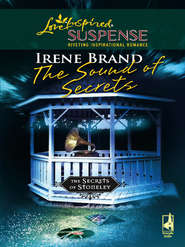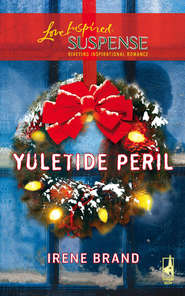По всем вопросам обращайтесь на: info@litportal.ru
(©) 2003-2024.
✖
Heiress
Автор
Год написания книги
2019
Настройки чтения
Размер шрифта
Высота строк
Поля
“And they call Chicago the windy city,” Allison said to Charles as she noticed the effect of the strong wind sweeping across High Street where it intersected with Broad. People could hardly stand against its power. Stoplights and shop signs risked being blown from their moorings. Pigeons with ruffled feathers, strutting along the street looking for crumbs, staggered drunkenly from the force of the blasts, and passengers waiting at the bus stops were sprayed with liquid as foam coffee cups were torn from their hands.
“It’s a nice city, though,” Charles observed. “Smaller than Chicago, but enough like it that you wouldn’t notice a great deal of difference.”
Before they reached the stone statehouse in Capitol Square, they observed the sprawling Nationwide Insurance Plaza and passed under the connecting mall bridge between Lazarus and Jacobson’s, the city’s two large department stores. The stately city hall building was on their right as the taxi dodged in and out of traffic on busy High Street.
The attorney’s office was in a two-story brick building, which had been a dwelling at one time. Charles paid the taxi fare, took Allison’s arm, steered her along the sidewalk and up the two steps to the front door. She sighed deeply.
“You’re prettier when you smile,” Charles said jokingly, and Allison forced her features to relax. She couldn’t smile, but she did look pleasant as she inspected her image in the glass panel of the walnut door. A sign on the door said Open. Come in.
There was no turning back now. A blast of heat hit their faces, and it felt good after the chill morning air. They were in a narrow, heavily carpeted foyer with a circular stairway leading upward. The door to the left was marked Receptionist, and a woman well past her youth greeted them with a pleasant, “Good morning.” She was dressed in a black suit, and her elegance blended with the lavish office, which must have contained every modern office machine on the market. Thomas Curnutt obviously wasn’t a struggling young lawyer.
“I’m Charles Sayre, and this is my daughter Allison. We have an appointment with Mr. Curnutt.”
“Won’t you be seated for a few minutes? I’m Mary Curnutt, and my husband was delayed with a client at the hospital this morning, but he telephoned just a few moments ago that he would be here soon.”
Another delay, Allison thought with a sigh. If the Lord was trying to teach her patience, she was in the right classroom. Although it had been only eight days since she’d learned of her inheritance, the wait had seemed endless.
Alert to her moods, Charles muttered, “You’ve waited this long—five minutes more won’t make much difference.”
She flashed him a smile. How many times in her life had this best of all fathers jollied her out of the dismals?
The phone rang, and under cover of the secretary’s conversation, Charles said, “I can’t understand you. You’ve suddenly become a millionaire. That’s supposed to make you happy. You were excited at first. What’s happened?”
“I’m disturbed about Mother’s reaction. If she wanted me to have the money, I’d be dancing around light as a feather. I can’t be happy if I make others unhappy.”
Charles waved his arm in an impatient gesture. “Forget your mother. There comes a moment in all our lives when we can’t do what our parents want us to. Your mother will get over her peeve, but it will take time. Just be patient with her. And another thing, my only purpose here is to give you support. You’ll have to do the talking, so loosen up.”
When the secretary terminated her conversation, she said, “I believe I heard Mr. Curnutt come in.”
The door behind the secretary opened, and a well-built man of medium height entered the reception room. He had glossy dark hair, streaked with gray, and brown eyes, and Allison judged he was about sixty years old. He advanced and shook hands with Charles.
“I’m sorry to keep you waiting, Mr. Sayre,” Curnutt said in a deep-toned powerful voice, and he turned to Allison. “And this is Allison, I presume.”
Allison took his outstretched hand. He sounded as if meeting her was his greatest pleasure, and Curnutt’s presence affected her like a gentle breeze on a soft, spring day. She felt safe in his hands, and much of her nervousness dissipated under the influence of his warm, radiant personality as he stood aside to let Allison precede him into his office. The office had the air of a cozy living room, with comfortable leather chairs grouped about two coffee tables. The focal point of the room was a window overlooking the backyard, where cardinals and chickadees fought for sunflower seeds in a well-filled bird feeder. Tall maple trees marked the property line, and a fountain, now wrapped in a protective cover, would provide a pleasant addition to the scene in summer.
The attorney seated Allison and Charles beside one of the low tables, and Mrs. Curnutt brought in a silver tray containing coffee and tea urns and a plate of homemade cookies. Charles poured a cup of coffee and handed it to Allison, but she declined. She wouldn’t have considered putting food or drink into her queasy stomach.
While Curnutt opened a locked file and took out a well-filled folder, Allison clenched her fingers and commanded them not to tremble. God, I need some help, she prayed, and instantaneously she remembered a verse that she’d heard over and over at funerals. She almost felt as if this were her funeral—at least it was the death of her old way of life, so the words were welcome. “Do not let your hearts be troubled and do not be afraid.”
She felt Charles’s eyes upon her, and she was smiling when Curnutt sat down and laid the folder on the table between them.
“Mr. Curnutt,” Allison began in a steady voice, “the inheritance from my uncle came as a complete surprise to all of us. I know nothing about his affairs.”
He nodded. “I was aware that Harrison had not made his intentions known to you, and I advised him that he was making a mistake, and especially after he became ill, I insisted that you should be told, but he refused.”
“Then he wasn’t sick when he first made this will,” Allison said, taking the document from her purse.
“That’s correct. Harrison and I have been friends for years, and he had never mentioned a family until he came in here three years ago and asked me to draw up his will.”
“He must have been a strange man. He didn’t keep in contact with us, either.”
“He was a lonely man, I think, because he was attentive to his ailing wife. He worked hard at his company, but he had no social life.” Curnutt spread open the file. “Since I knew you were coming, I’ve prepared a portfolio of his worth so we could start probating the will upon your arrival.”
“Since I know nothing about his assets, tell me what I need to know.”
He smiled at her. “You should know, Miss Sayre, that you’ve become a very wealthy young woman. Page Publishing alone is worth more than a million, his three-story Victorian home could be listed for close to a million, and I estimate that his stocks, bonds and other assets will round out your total inheritance at nearly three million dollars.”
Sweat popped out on Allison’s hands, and she suddenly felt faint. Curnutt’s smiling face faded before her, and Charles placed a hand on her shoulder and shook her gently.
“I’m all right, but it’s overwhelming. You see, Mr. Curnutt, my mother wants me to sell the house and the publishing company and take cash for everything, and that’s a lot of cash! She doesn’t want me to move to Columbus, for she says I’m not mature enough to take over Uncle Harrison’s business, and I suspect she’s right.”
Curnutt shook his head and handed her a sheet of paper. “This is a copy of the codicil to your uncle’s will, and I neglected to give it to your parents last week. Perhaps Harrison had second thoughts about saddling you with so much responsibility, but a year ago, he made these provisions—you must manage Page Publishing Company for at least three years before you can sell it. And you will notice the stipulation that if you do not choose to abide by these provisions, you will not inherit, the business will be shut down and his assets will be liquidated and given to Mount Carmel Hospital.”
“So I take everything he had or nothing?”
“That’s right.”
Allison left the chair and walked toward the window. The cardinals flashed brilliant in the morning’s sun as they flew gracefully from the tall maples down to the feeder, grabbed a seed and winged back to their perch. Unlike birds in the wild, they had become dependent upon these handouts, and she wondered if she could accept Harrison’s money without becoming a slave to it. Unlike Tim, who was far too interested in material possessions, money had never been that important to Allison. Even when she considered leaving her present job, it wasn’t to earn more money—she simply wanted an opportunity to learn more and be more productive.
She sat down on the cushioned window seat and looked at Curnutt “Tell me something about Page Publishing Company.”
“Harrison started the business about thirty years ago. They specialize in printing curriculums for colleges and secondary schools. When Harrison started out, he did some trade publishing, but the business is really a printing company now, for they don’t deal with the authors personally. Rather, they do contract printing for a number of publishers. They produce books in Spanish, French and German, and they’re shipped all over the world. It’s a stable business.”
“What do you think I should do, Daddy?”
“The decision is yours, honey, but if you want some advice, I’d say go for it. You’ve had some experience with the publishing world. You’ll never know what you can do until you try. I’ve always heard, and I believe it, that when God closes one door of opportunity, He opens another. The Donald door is closed—you know that—so if God has provided a new pathway for you, be cautious about closing it before you step through. But,” he repeated, “the decision is yours.”
Allison stared at the floor and, with the toe of her shoe, traced the outline of the hexagon shapes on the carpet. Curnutt and Charles didn’t rush her.
“May I take some time to deliberate?”
“Certainly,” Curnutt said, “but I wouldn’t hesitate long. Will it help you make up your mind if I take you to Page Publishing and the house Harrison owned?”
“I’m not ready for that yet. I want to go back home and make my decision there. I’ll telephone you within a week.”
The attorney closed the file before him. “Very well.” He gave her a look of admiration. “May I say that it’s a privilege to work with such an exceptional young woman.”
Allison’s look of surprise was genuine. “Exceptional? Me? I’ve always considered myself a very ordinary person.”
“You aren’t, Miss Sayre. I don’t know of anyone—young or old—who would hesitate a minute if given an opportunity to have several million dollars handed to them. Let me repeat, you’re exceptional. I would be interested to know why you are so cautious.”
“I haven’t really thought it out, but I suppose I’m hesitating for a number of reasons. I’m afraid I will make a failure and lose everything. Also, I told you my mother doesn’t want me to move to Columbus, and I don’t want to be at odds with her. And what will so much wealth do to my values? My parents have taught me to avoid selfishness and greed, and I’ve had everything I want on a moderate income. Will I be greedy to take so much wealth? No doubt the hospital needs it more than L”
Curnutt smiled at her and shook his head. “As I said before, exceptional.”
Allison was silent as they traveled from Curnutt’s office to the airport, and Charles didn’t press her to talk. As the plane lifted into the air and she looked down on Columbus, now illuminated by the noonday sun, she said, “Daddy, I don’t think I can handle it.”
“I don’t care what you do, but you’re worrying needlessly about some things,” Charles said sternly. “I’ve told you that Beatrice will come around. She loves you. She won’t want to be estranged from you. And about running that business—millionaires don’t make all their own decisions—that’s why they employ accountants and lawyers. Besides, the employees at Page Publishing will do the work. Your job will be to see that they’re doing it right.”











